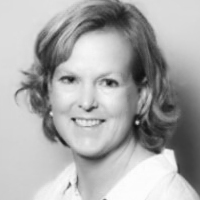This text-based course is a transcript of the live seminar, “Improving Oral Care in your Facility,” presented by Susan Horton, M.S., CCC-SLP.
>> Susan Horton: What we will be doing today is describing an oral mechanism exam, which we will briefly go over. We will describe the role of the SLP performing patients’ oral care. We will describe how oral care fits into the treatment plans, correlate medical complications as a result of poor oral hygiene, and utilize suggested tools for improving interdisciplinary education for those facilities in the oral hygiene program. For an overview, we will talk about the patient care and facility trends that I kind of discovered, importance of oral care, a good literature review, and the oral assessment and care, quality improvement tools that I have created, and will be happy to share with you.
Patient Care/Facility Trends
As you have already seen, I have used oral hygiene and oral care interchangeably and I will probably continue to do that throughout this hour. Here is a definition of what oral hygiene is: “The practice of keeping the mouth clean and healthy by brushing and flossing to prevent tooth decay and gum disease” (http://medical-dictionary.thefreedictionary.com/oral+hygiene). When we talk about this, it seems like a no-brainer that this should be happening. As we all know, it is a battle and a problem in our facilities, and with our patients.
My background in this, and my interests in oral care improvements, began when I wanted to establish a free water protocol at my facility. For those of you who may not be familiar, a free water protocol is just allowing dysphagia patients water in between meals but after oral care. Oral care practice was really inconsistent and not always effective. Oral care education and standards needed to be updated. I brought this to my colleagues at the hospital and they laughed at me. They said, “There is no way we could ever do that at our facility. The oral care is few and far between. It is not consistent and it is really not effective. People’s mouths are really terrible.” It gave me this feeling like this was a challenge. I wanted to do something about this because this is not good patient care. That is where things began.
I did get it together and started an oral care committee. It was really just three of us, two nurses and myself. One of the nurses was a clinical nurse leader or educator for the special care population, and she had already done a lot of education about oral care with the ventilator population. So I was able to pick her brain and say, “What can we tweak? It really fits all of our patients in all the different units.”

